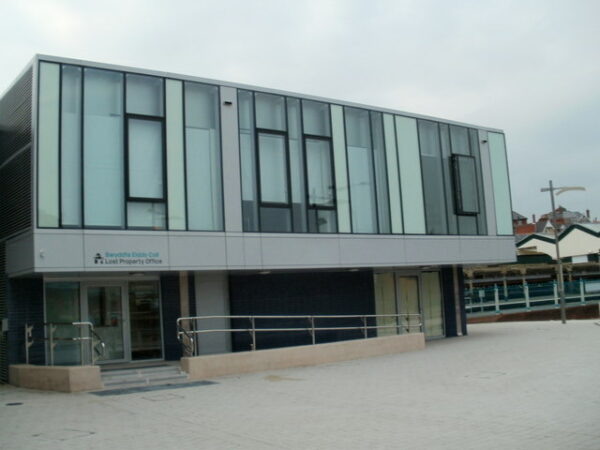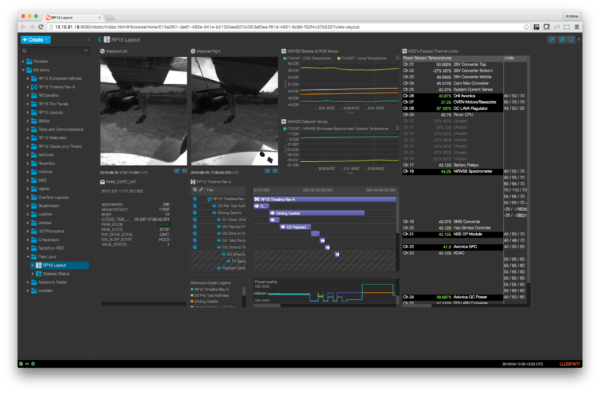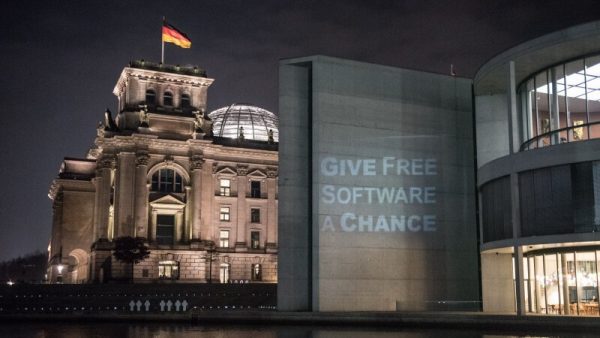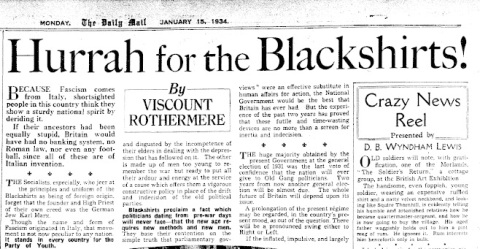More than 60 academic institutions quit X
 More than 60 German and Austrian universities and research institutions wanted to set an example and collectively announced that they were ceasing their activities on the X social media platform, a cesspit of far-right intolerance, ignorance, paranoia, misinformation, flat-out lying, and malicious abuse formerly known as Twitter. This withdrawal is a result of the lack of compatibility between the platform’s current orientation and the core values of the institutions involved: cosmopolitanism, scientific integrity, transparency and democratic discourse.
More than 60 German and Austrian universities and research institutions wanted to set an example and collectively announced that they were ceasing their activities on the X social media platform, a cesspit of far-right intolerance, ignorance, paranoia, misinformation, flat-out lying, and malicious abuse formerly known as Twitter. This withdrawal is a result of the lack of compatibility between the platform’s current orientation and the core values of the institutions involved: cosmopolitanism, scientific integrity, transparency and democratic discourse.
The changes to X – from the amplification of right-wing populist content to the restriction of organic reach – make further use untenable for the organisations involved. The institutions’ withdrawal underscores their commitment to fact-based communication and against anti-democratic forces. The values that promote diversity, freedom and science are no longer present on the platform.
Some institutions which have already ceased their activities on the platform also support the joint appeal, thereby reaffirming the importance of an open and constructive culture of discussion. This decision only affects the X-accounts of the institutions involved and not their communication via other social media channels. In the light of recent events, they will continue to closely monitor the development of the platforms and their algorithms.
The institutions concerned are as follows:
- Alanus Hochschule für Kunst und Gesellschaft;
- Bauhaus-Universität Weimar;
- Berliner Hochschule für Technik;
- Brandenburgische Technische Universität Cottbus – Senftenberg;
- Christian-Albrechts-Universität in Kiel;
- Deutsche Ornithologische Gesellschaft;
- Deutsche Sporthochschule, Cologne;
- Europa-Universität Viadrina Frankfurt (Oder);
- Fachhochschule Dortmund;
- FernUniversität in Hagen;
- Freie Universität Berlin;
- Friedrich-Alexander-Universität Erlangen-Nürnberg;
- Goethe-Universität Frankfurt;
- HAWK Hochschule für angewandte Wissenschaft und Kunst Hildesheim/Holzminden/Göttingen;
- Heinrich-Heine-Universität, Düsseldorf;
- Hochschule Anhalt;
- Hochschule Bonn-Rhein-Sieg;
- Hochschule Darmstadt;
- Hochschule der Bildenden Künste Saar;
- Hochschule für Musik und Theater, Hamburg;
- Hochschule für Philosophie, Munich;
- Hochschule Furtwangen;
- Hochschule München;
- Hochschule Neubrandenburg;
- Hochschule Osnabrück;
- Hochschule RheinMain;
- Hochschule Ruhr West;
- Hochschule für nachhaltige Entwicklung, Eberswalde;
- Hochschule für Wirtschaft und Umwelt, Nürtingen-Geislingen;
- Humboldt-Universität in Berlin;
- Institut für Vogelforschung;
- Johannes Gutenberg-Universität, Mainz;
- Justus-Liebig-Gesellschaft;
- Justus-Liebig-Universität, Gießen;
- Katholische Hochschule Nordrhein-Westfalen;
- Kirchliche Hochschule, Wuppertal;
- Leibniz-Zentrum für Marine Tropenforschung;
- Leibniz-Institut für Ostseeforschung Warnemünde;
- Medizinische Universität Innsbruck;
- Philipps-Universität Marburg;
- RWTH Aachen;
- Technische Hochschule Georg Agricola;
- Technische Hochschule, Cologne;
- Technische Universität Braunschweig (Brunswick);
- Technische Universität Darmstadt;
- Technische Universität Dresden;
- Universität Bamberg;
- Universität Bayreuth;
- Universität des Saarlandes;
- Universität der Künste, Berlin;
- Universität Duisburg-Essen;
- Universität Erfurt;
- Universität Greifswald;
- Universität Heidelberg;
- Universität Innsbruck;
- Universität Münster;
- Universität Potsdam;
- Universität Siegen;
- Universität Trier;
- Universität Ulm;
- Universität Würzburg;
- Universität zu Lübeck; and
- Westsächsische Hochschule, Zwickau.

 The Free Software Foundation Europe (FSFE) is intervening in litigation brought by Apple against the European Commission before the Court of Justice of the European Union (CJEU). Apple is seeking to avoid Digital Markets Act obligations related to its App Store and the interoperability of its operating system. The FSFE’s mission is to protect free Ssoftware against monopolistic corporate control.
The Free Software Foundation Europe (FSFE) is intervening in litigation brought by Apple against the European Commission before the Court of Justice of the European Union (CJEU). Apple is seeking to avoid Digital Markets Act obligations related to its App Store and the interoperability of its operating system. The FSFE’s mission is to protect free Ssoftware against monopolistic corporate control.






 This year’s LibreOffice Conference will open at noon CEST on 23rd September and will conclude at 5:30p.m. CEST on 25th September.
This year’s LibreOffice Conference will open at noon CEST on 23rd September and will conclude at 5:30p.m. CEST on 25th September. REUSE is a set of best practices to make Free Software licensing much easier. Using simple guidelines, it helps developers stipulate their copyright and conditions for code re-use, as well as providing documentation and low-threshold tools to get the job done.
REUSE is a set of best practices to make Free Software licensing much easier. Using simple guidelines, it helps developers stipulate their copyright and conditions for code re-use, as well as providing documentation and low-threshold tools to get the job done.

